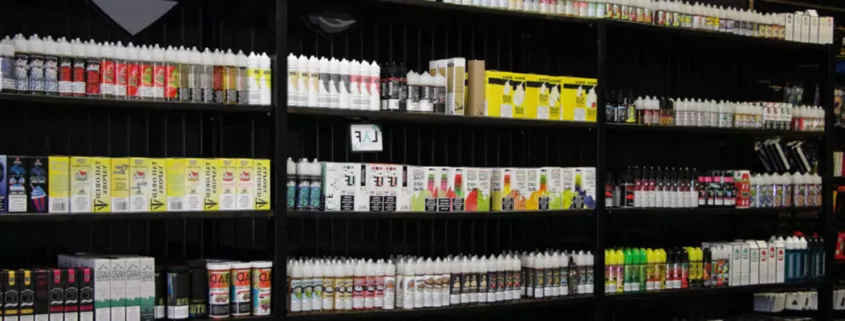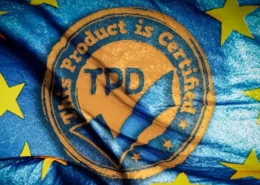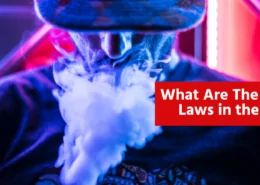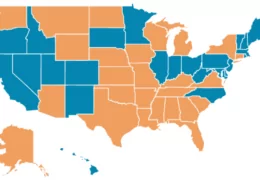Russia Vape Regulation – State Duma Discusses Market Reform
As several bills aimed at significantly complicating the sale of electronic cigarettes in Russia are being discussed in the federal government and the State Duma (SD), industry experts warn that overly restrictive measures could drive the market underground, leading to illegal sales via messaging apps, the internet, or even from cardboard boxes on the street.
Expert Councils Discuss Amendments to Proposed Legislation
Last week, two expert councils were held in the State Duma under the leadership of Deputy Chairman of the SD Committee on Economic Policy, Artem Kiryanov, and Co-Chairman of the State Duma Expert Council on Competition Development in the Nicotine-Containing Products Market, Sergey Katasonov. The councils discussed amendments to the documents under development, with Kiryanov noting that a complete ban on vapes would not lead to their disappearance but instead push the products into the shadow realm.
Small Businesses at Risk of Closure
According to Sergey Borisov, Chairman of the Board of Trustees of the All-Russian Public Organization of Small and Medium Enterprises “OPORA RUSSIA,” more than 150,000 small and medium-sized companies, especially in remote areas of the country, will not be able to continue selling vapes if the proposed legislation is implemented. The key bill, developed by the Ministry of Finance, includes requirements such as a minimum retail outlet area of 25 square meters in rural areas or 50 square meters in cities, a distance of at least 100 meters from educational institutions, and wholesalers owning or renting warehouse premises for a year.
Experts Question Feasibility of Proposed Measures
Elena Dubankova, Director of Government and Public Relations for SNC Group, believes that the proposed floor space requirements are out of touch with reality, as retail outlets typically occupy up to 8-10 square meters in the regions and slightly more in Moscow. She warns that these businesses will either cease operations or reformat, possibly into an illegal format. Dubankova also points out that warehouse owners are not ready for long-term rentals due to the additional costs associated with registering contracts with official bodies.
Furthermore, the concept of allowing regions to introduce additional restrictions on the circulation of certain types of products has been met with opposition from both industry experts and representatives of regional authorities. Konstantin Rainot, Government Relations Manager at Philip Morris Sales and Marketing, argues that this measure could destroy the established system and hinder the ability of distribution and manufacturers to plan their activities. Gennady Spirchagov, Chairman of the Government of the Ulyanovsk Region, notes that most regions are in a difficult financial condition and do not have the ability to create new control bodies to enforce such measures.
Combating Illegal Vape Market and Protecting Minors
While the vape market undoubtedly needs regulation, experts believe that the excise tax on vapes should be reduced rather than increased to encourage legal trade. Dmitry Ovchinnikov, head of the product group at the Center for the Development of Advanced Technologies (CDAT), reported that over two years, illegal turnover of nicotine-containing liquids decreased from 79% to 65.8% due to the implementation of vape marking in the “Honest Sign” system. However, some experts estimate that the share of legally produced vapes on the market does not exceed 10%.
Industry experts propose a “soft entry” approach for businesses entering the market, with legal traders being listed in a special registry. Those engaging in illegal activities would face a “hard exit” from the market.
Another critical issue is the sale of electronic cigarettes to minors. Sergey Katasonov, co-chairman of the State Duma Expert Council on Competition Development in the Nicotine-Containing Products Market, cites surveys showing that 30% of schoolchildren under 14 years old and almost 44% of those under 17 years old have been introduced to tobacco and nicotine-containing products. One possible solution is the use of facial recognition technology to verify the age of buyers, as proposed by Sberbank’s “Biometrics” Division.
Consequences of a Complete Ban or Overly Restrictive Measures
Experts warn that if the sale of vapes in Russia is completely banned or if unfeasible requirements are introduced, electronic cigarettes will start being sold through underground channels. Konstantin Kunts, a member of the Public Council under the Ministry of Health of Russia and director of the “Integration” agency, believes that with restricted access to vapes, many users may switch to smoking conventional tobacco. He also warns that further tightening of control over tobacco products, combined with the persistent need for neurochemical stimulation and the unavailability of legal products, could lead to increased demand for narcotic substances.
As Russian lawmakers continue to debate the future of vapes in the country, striking a balance between effective regulation and maintaining a legal, accessible market will be crucial to avoid unintended consequences and protect public health, particularly that of minors.
- Info Source: «Мягкий вход» и «жесткий выход»: в Госдуме обсуждают стратегию обеления рынка продажи вейпов
- Tahiti Proposes Sweeping New Tobacco and Vape Regulations - April 23, 2025
- Hamburg Customs Seizes Illegal Vapes, Prevents €730k Tax Loss - April 23, 2025
- Limeira: First Brazilian City to Ban Vapes in Public Spaces - April 23, 2025









